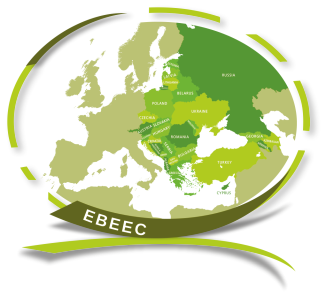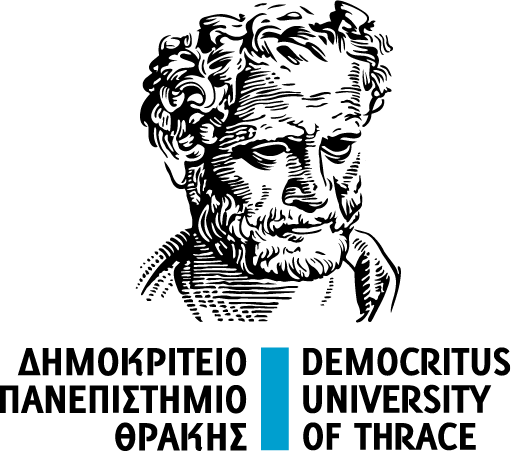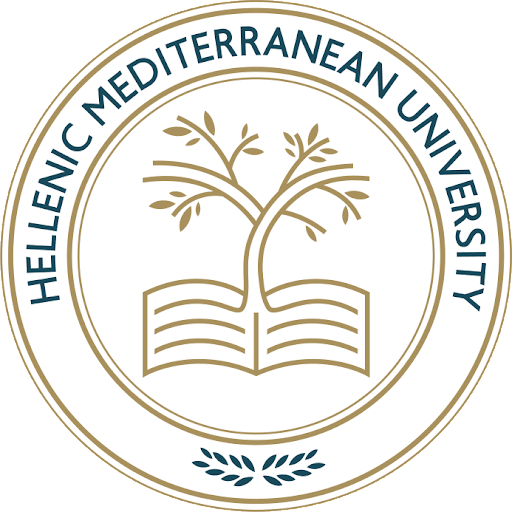
18th International Conference
Economies of the Balkan and Eastern European Countries
ΕΒΕΕC 2026
May 15-17, 2026
Heraklion, Crete, Greece
Democritus University of Thrace, School of Management Science and Accounting, Department of Finance and Accounting, Kavala, Greece
Hellenic Mediterranean University, School of Management and Economics Sciences, Department of Accounting and Finance & Department of Management Science and Technology, Heraklion, Greece
Conference Venue:
Hellenic Mediterranean University, Heraklion, Crete, Greece
https://hmu.gr/en/home/
Contact us at: ebeec@af.duth.gr

Call for Papers
The economies of the Balkans and Eastern Europe are undergoing profound transformations, influenced by globalization, digitalization, and sustainability challenges. EBEEC 2026 invites submissions in the areas of economics, business, and regional development, encouraging research that addresses these evolving dynamics.
Key areas of interest include economic transformation, innovation in business and public sector, technological advancements such as artificial intelligence and digitalization, as well as sustainable practices and finance. We also welcome papers on economic growth, regional development, corporate governance, and policy analysis. We welcome submissions from diverse fields of economics, business, and interdisciplinary studies. To enrich the discussion with varied international perspectives and experiences, we also invite papers from other regions worldwide.
This year’s conference will feature inspiring talks from industry practitioners, offering real-world insights into economic and business challenges. Additionally, we expect to offer specialized seminars for PhD candidates, and workshops exploring the latest trends in economic science and business innovation.
Join us at EBEEC 2026 to engage in dynamic discussions on the future of economic policy, regional growth, and business transformation in a rapidly changing world. We look forward to your contributions, which will help shape meaningful dialogue in the global economic landscape.
Why Attend EBEEC?
- Publication Opportunities: Present your research, with a good chance to publish in Scopus-indexed and other reputable sources.
- Diverse Topics: Broad range of topics in economics, business, technology, and sustainability, encouraging multidisciplinary research.
- Inclusive Submission Policy: EBEEC maintains high standards, while offering balanced acceptance rates, allowing researchers to present their work, even if it's in progress. This fosters participation and valuable feedback while ensuring quality.
- Round-Table Discussions: Participate in discussions on the latest trends in economics.
- Keynotes from Industry and Policy Leaders: Learn from experts and thought leaders in economics and business during keynote sessions.
- Workshops and Seminars: Attend special seminars for skill development, including PhD workshops on research methodology and publication strategies.
- Networking: Engage with leading academics, practitioners, and peers from across the globe.
Publication Opportunities
Accepted papers, presented at the Conference, will be considered for publication in several high-quality outlets, including:
- Book of Conference Proceedings published by Springer: Selected papers will be included in the Book of Proceedings published by Springer and indexed in Scopus. For reference, see the Conference Proceedings for EBEEC 2024 (the Book from EBEEC 2025 has not been published yet).
- Special Issue (Book) published by Springer: Selected papers will be included in an edited volume published by Springer and indexed in Scopus. For reference, see the Special Issue for EBEEC 2024 (the Special Issue from EBEEC 2025 has not been published yet).
- Collaborating Journals: Selected papers will have the opportunity to be published in respected journals that collaborate with the Conference:
- European Journal of Interdisciplinary Studies
- Studies in Business and Economics
- Eastern Journal of European Studies
- Scientific Annals of Economics and Business
- Intellectual Economics
- Mecosan
- Romanian Journal of Economic Forecasting
- International Journal of Economics & Business Administration
- Montenegrin Journal of Economics
- Journal of Business Paradigms
- Scientific Bulletin - Economic Sciences
- International Journal of Business and Economic Sciences Applied Research
- Oeconomica Jadertina
- Heliyon
- Conference Proceedings (e-book, ISSN).
Important Dates
Notification of Decision: February 28, 2026 March 10, 2026
Registration Deadline (Fees): April 30, 2026
Conference Dates: May 15 -17, 2026
Full Paper Submission: June 15, 2026
Decision about Full Paper Acceptance: July 15, 2026
Conference Program
Friday, May 15: Opening Ceremony / Presentations / Dinner (included in registration fees)
Saturday, May 16: Presentations / Official Gala (included in registration fees)
Sunday, May 17: Social Program (details to be announced)
Stay tuned for further updates as additional information becomes available!
Conference Topics
- Economic Policy, Growth, and Sustainability
- Innovation, Technology, and Digital Transformation
- Corporate Governance, Finance, and Markets
- Circular Economy and Digital Transformation for Sustainable Growth
- Regional Development and Globalization
- Entrepreneurship and Business Strategy
- Public Sector and Governance
- Energy, Green Growth, and Sustainable Finance
- Social and Economic Inequality
- Labour Markets and Demographic Change
- Tourism, Culture, and Regional Identity
- Trade, International Relations and Economic Diplomacy
- Health Economics and Public Welfare
- Knowledge Economy and Human Capital
- Mobility, Transport, and Infrastructure Development
- Cultural and Creative Industries in Economic Development
- Accounting, Auditing, Taxation, Finance, Digital Finance, Fintech
- Management and Marketing
- Corporate Governance, Business Ethics, CSR and ESG
- Monetary Economics and Banking
- Data Analytics and Business Intelligence
- Supply Chain and Operations Management





